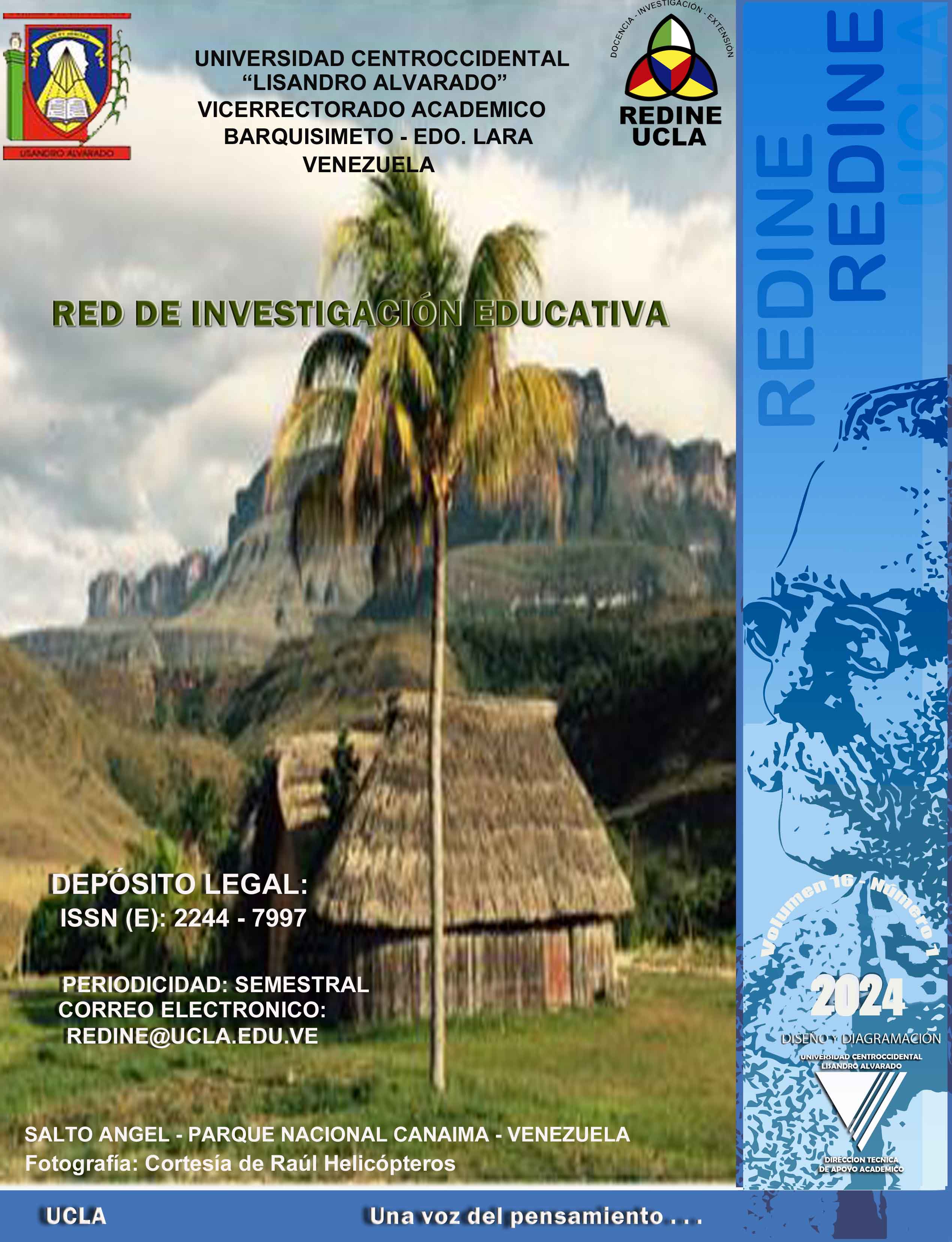Research trends in the Deanate of Humanities and Art. Centrooccidental University “Lisandro Alvarado”
DOI:
https://doi.org/10.5281/zenodo.10424471Keywords:
research trends, research approaches, paradigms, types of researchAbstract
The purpose of this study is to present the research propensities adopted by the students of the Bachelor's Programs in Psychology, Art, Music and Human Development, belonging to the Dean of Humanities and Art (DEHA), at the Universidad Centroccidental “Lisandro Alvarado”, at the time of constructing and presenting his Special Degree Work (TEG). In this sense, a documentary investigation was carried out, based on the Data stored in the Central Library “Dra. María Gómez”, located on the aforementioned university campus. In addition to this bibliographic study, descriptive statistics (frequency and percentage) were applied to accurately specify the research approaches used in the various TEGs of each of these programs. It is worth noting that research trends at DEHA will depend on the degree that students are studying. That is to say, there is a preference towards the application of the quantitative approach (the numerical, the objective, the measurement) in the Psychology program and in the Human Development, Art and Music programs, their inclination is towards the qualitative aproche (the interpretation of language, gestures, symbols). Assertions that allow us to reflect and ask ourselves, Why is there not a balanced balance of research approaches (quantitative and qualitative) when constructing the academic products of graduates? Therefore, it is recommended to carry out similar studies that access other variables and research dimensions linked to this type of topic and thus archive a Deep understanding of the origin of these results. Likewise, it is substantial to seek to promote and explain the incidences of quantitative and qualitative research approaches, when approaching and studying the object of study or social phenomenon of interest to be investigated.
Downloads
References
Arnal, J. (1992). Investigación educativa. Fundamentos y metodología. Barcelona (España): Labor.Alvarado, Lusmidia y García, Margarita. (2008). Características más relevantes del paradigma socio-crítico: su aplicación en investigaciones de educación ambiental y de enseñanza de las ciencias realizadas en el Doctorado de Educación del Instituto Pedagógico de Caracas Sapiens. Revista Universitaria de Investigación, vol. 9, núm. 2, diciembre, 2008, pp. 187-202. Universidad
Pedagógica Experimental Libertador Caracas, Venezuela
http://www.redalyc.org/articulo.oa?id=410118
Barrantes, R. (2014). Investigación, Un camino al conocimiento, Un Enfoque Cualitativo, Cuantitativo y Mixto. San José, Costa Rica, Editorial EUNED.
Contreras, Luz Marina. (2011). Tendencias de los paradigmas de investigación en educación. Investigación
y Postgrado, 26(2), 161-178. http://ve.scielo.org/scielo.php?
script=sci_arttext&pid=S1316-00872011000200006&lng=es&tlng=es
Dobles-Trejos, Cecilia, Jiménez-Corrales, Rafael Esteban, Ruiz-Guevara, Lillian Susana, & Vargas-Dengo, Marie Claire. (2015). Trayectoria de las prácticas investigativas en la División de Educación Básica de la Universidad Nacional: Ruptura, innovación y cambio de paradigmas. Revista Electrónica Educare, 19(2), 383-404.
http://www.scielo.sa.cr/scielo.php?script=sci_arttext&pid=S1409-42582015000200021&lng=en&tlng=P
Espinosa A. (s/f). Importancia de la investigación educativa. Ponencia presentada en el Primer Congreso
Internacional de Transformación Educativa. Consejo de Transformación Educativa |.
https://transformacion-educativa.com › importancia-de…
Guerrero Dávila, G. (2015). Metodología de la investigación. México D.F, México: Grupo Editorial Patria. https://ezproxy.unisimon.edu.co:2258/es/ereader/unisimon/40363?page=200
Hernández Sampieri, R., Fernández Collado, C., & Baptista Lucio, P. (2014). Metodología de la
investigación (6a. ed. --.). México D.F.: McGraw-Hill.
Hernández M. (2022). Estudio documental (2010-2020) La actitud de los estudiantes universitarios
hacia la investigación científica. Summa Psicológica
https://www.uv.mx›iiesca›files›2022/10
Sánchez, C. (2019). Orígenes y evolución de la Investigación Cualitativa en Educación. In F. N. de Souza,
D. N. de Souza, & A. P. Costa (Eds.), Investigação Qualitativa: Inovação, Dilemas e Desafios
(Volume 2) (3a, pp. 41–74). Ludomedia
Vera - Pirela, C. A., y Galvis - Núñez, C. C. (2022). Competencias investigativas en los estudiantes de
Administración de Empresas, universidades públicas. Revista Científica Profundidad Construyendo Futuro, 17(17), 25–34.
Published
How to Cite
Issue
Section

This work is licensed under a Creative Commons Attribution-NonCommercial-ShareAlike 4.0 International License.
Derechos del/de autor/es a partir del año de publicación
Esta obra está bajo la licencia:
Creative Commons Reconocimiento-NoComercial-CompartirIgual 4.0 Internacional (CC BY-NC-SA 4.0)
Las opiniones expresadas por los autores no necesariamente reflejan la postura del editor de la publicación ni de la UCLA. Se autoriza la reproducción total o parcial de los textos aquí publicados, siempre y cuando se cite la fuente completa y la dirección electrónica de esta revista. Los autores(as) tienen el derecho de utilizar sus artículos para cualquier propósito siempre y cuando se realice sin fines de lucro. Los autores(as) pueden publicar en internet o cualquier otro medio la versión final aprobada de su trabajo, luego que esta ha sido publicada en esta revista.




